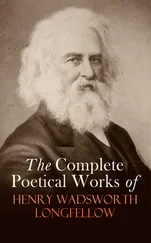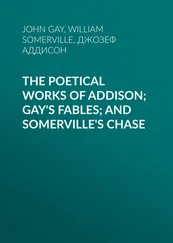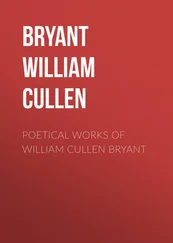James Beattie - The Poetical Works of James Beattie
Здесь есть возможность читать онлайн «James Beattie - The Poetical Works of James Beattie» — ознакомительный отрывок электронной книги совершенно бесплатно, а после прочтения отрывка купить полную версию. В некоторых случаях можно слушать аудио, скачать через торрент в формате fb2 и присутствует краткое содержание. ISBN: , Жанр: foreign_antique, foreign_prose, foreign_poetry, на английском языке. Описание произведения, (предисловие) а так же отзывы посетителей доступны на портале библиотеки ЛибКат.
- Название:The Poetical Works of James Beattie
- Автор:
- Жанр:
- Год:неизвестен
- ISBN:http://www.gutenberg.org/ebooks/41760
- Рейтинг книги:5 / 5. Голосов: 1
-
Избранное:Добавить в избранное
- Отзывы:
-
Ваша оценка:
- 100
- 1
- 2
- 3
- 4
- 5
The Poetical Works of James Beattie: краткое содержание, описание и аннотация
Предлагаем к чтению аннотацию, описание, краткое содержание или предисловие (зависит от того, что написал сам автор книги «The Poetical Works of James Beattie»). Если вы не нашли необходимую информацию о книге — напишите в комментариях, мы постараемся отыскать её.
The Poetical Works of James Beattie — читать онлайн ознакомительный отрывок
Ниже представлен текст книги, разбитый по страницам. Система сохранения места последней прочитанной страницы, позволяет с удобством читать онлайн бесплатно книгу «The Poetical Works of James Beattie», без необходимости каждый раз заново искать на чём Вы остановились. Поставьте закладку, и сможете в любой момент перейти на страницу, на которой закончили чтение.
Интервал:
Закладка:
In 1760, a chair in the Marischal College becoming vacant, it was suggested to Beattie by his friend, Mr. Arbuthnot, 7 7 Robert Arbuthnot, Esq., Secretary to the Board of Trustees for Fisheries, Manufactures, and improvements in Scotland, who resided chiefly at Peterhead, where he carried on business as a merchant; a person of considerable taste and learning. He was nearly related to the famous Dr. Arbuthnot, the friend of Pope and Swift.
that he should endeavour to procure the appointment for himself. Our author, who had never dreamed of aspiring to so dignified a situation, heard the proposal with astonishment. Mr. Arbuthnot, however, "willing to try what could be done," induced the Earl of Erroll, with whom he was on intimate terms, to solicit, by means of Lord Milton, the powerful interest of the Duke of Argyll in behalf of the humble usher. The application proved successful; and on the 8th October, 1760, Beattie was installed Professor of Moral Philosophy and Logic in the Marischal College.
His first lectures were delivered during the winter session of 1760, and 1761; and for the long space of more than thirty years he continued to discharge most conscientiously the duties of the important station to which he had been so unexpectedly raised.
A literary and convivial club (to which the vulgar gave the nickname of the Wise Club ) had been established for some years at Aberdeen, the members consisting of the Professors of the Marischal and King's Colleges, and of gentlemen of the town, who had a taste for literature and conversation. Into this society Beattie was now enrolled. They used to meet at a tavern, once a fortnight, at five o'clock in the afternoon, (for in those days the common dinner-hour was early) when, the president taking the chair, an essay was read, composed by one of the members in his turn, and a literary or philosophical subject discussed; at half past eight a slight meal was served up, and at ten they retired to their homes. To this club Dr. Reid, Dr. Campbell, Dr. Gerrard, and Dr. Gregory, belonged; and from it several admired works of philosophy and criticism may be said to have originated.
In 1761 Beattie made his first appearance in print, in his own character, by publishing a small volume, dedicated to the Earl of Erroll, entitled Original Poems and Translations . It consisted partly of some of the verses which he had formerly sent to the Scots Magazine, and partly of pieces which he had recently composed. "This collection," says his good-natured and not very tasteful biographer, Sir William Forbes, "was very favourably received, and stamped Dr. Beattie with the character of a poet of great and original genius." It was certainly "favourably received," the chief critical journals of the day being unanimous in its praise; but that it "stamped the author with the character of a poet of great and original genius," I cannot allow. The truth is, it does not contain a single poem which rises much above mediocrity; and if Beattie had never touched the lyre with a more powerful hand, a memoir of his life would not have been required for the Aldine Poets. So lightly, indeed, did he himself afterwards think of the collection in question, that he used to destroy all the copies of it which he could procure, and would only suffer four pieces from it (and these much altered and improved) to stand in the same volume with The Minstrel .
During the summer of 1763, Beattie for the first time visited London, among the inhabitants of which, Millar, his publisher, was almost his only acquaintance. While residing there, he made a pilgrimage to Pope's villa at Twickenham.
The Judgment of Paris , printed in 4to, in 1765, was the least successful of our author's poetical works. Several passages of considerable beauty could not prevent this elaborate, cold, and metaphysical production from being utterly neglected by the public.
That his Verses on the death of Churchill (which appeared anonymously very soon after The Judgment of Paris ) were read with more attention, is to be attributed rather to the subject of the piece than to its intrinsic merit. 8 8 Sir William Forbes says it "had a rapid sale." Mr. A. Chalmers, however ( Poets , vol. xviii. p. 519), doubts if it was ever published for sale, except in Beattie's Poems , 1766, in the Advertisement to which we are told that it "appeared in a separate pamphlet in the beginning of the year 1765." I have been unable to meet with the original edition.
No one can peruse it without regretting that the amiable Beattie should have been betrayed by political feelings into such virulent abuse of a man of genius, who had just been gathered to the poets of other days. He is said to have written it at the solicitation of certain friends in Scotland, where the name of Churchill was held in detestation; and on these injudicious instigators let a portion of the odium rest.
In the autumn of 1765, Gray, who was then regarded as the first of living bards, paid a visit to the Earl of Strathmore, at Glammis castle. No sooner did Beattie hear of his arrival than he addressed to him the following letter:
Marischal College of Aberdeen, 30th August, 1765."If I thought it necessary to offer an apology for venturing to address you in this abrupt manner, I should be very much at a loss how to begin. I might plead my admiration of your genius, and my attachment to your character; but who is he that could not, with truth, urge the same excuse for intruding upon your retirement? I might plead my earnest desire to be personally acquainted with a man whom I have so long and so passionately admired in his writings; but thousands of greater consequence than I, are ambitious of the same honour. I, indeed, must either flatter myself that no apology is necessary, or otherwise I must despair of obtaining what has long been the object of my most ardent wishes; I must forever forfeit all hopes of seeing you, and conversing with you.
"It was yesterday I received the agreeable news of your being in Scotland, and of your intending to visit some parts of it. Will you permit us to hope, that we shall have an opportunity, at Aberdeen, of thanking you in person, for the honour you have done to Britain, and to the poetic art, by your inestimable compositions, and of offering you all that we have that deserves your acceptance, namely, hearts full of esteem, respect, and affection? If you cannot come so far northward, let me at least be acquainted with the place of your residence, and permitted to wait on you. Forgive, sir, this request; forgive me if I urge it with earnestness, for indeed it concerns me nearly; and do me the justice to believe, that I am, with the most sincere attachment, and most respectful esteem, &c. &c. &c.
"P. S. Dr. Carlysle of Musselburgh, and Dr. Wight of Glasgow, acquainted me of your being in Scotland. It was from them I learned that my name was not wholly unknown to you."
In consequence of this letter, Beattie received an invitation to Glammis castle; and a friendship and correspondence commenced between the two poets, which terminated only with the death of Gray. The impression which their first meeting made on our author he thus describes in a letter to Sir William Forbes: – "I am sorry you did not see Mr. Gray on his return; you would have been much pleased with him. Setting aside his merit as a poet, which, however, in my opinion, is greater than any of his contemporaries can boast, in this or in any other nation, I found him possessed of the most exact taste, the soundest judgment, and the most extensive learning. He is happy in a singular facility of expression. His conversation abounds in original observations, delivered with no appearance of sententious formality, and seeming to arise spontaneously without study or premeditation. I passed two very agreeable days with him in Glammis, and found him as easy in his manners, and as communicative and frank, as I could have wished."
Читать дальшеИнтервал:
Закладка:
Похожие книги на «The Poetical Works of James Beattie»
Представляем Вашему вниманию похожие книги на «The Poetical Works of James Beattie» списком для выбора. Мы отобрали схожую по названию и смыслу литературу в надежде предоставить читателям больше вариантов отыскать новые, интересные, ещё непрочитанные произведения.
Обсуждение, отзывы о книге «The Poetical Works of James Beattie» и просто собственные мнения читателей. Оставьте ваши комментарии, напишите, что Вы думаете о произведении, его смысле или главных героях. Укажите что конкретно понравилось, а что нет, и почему Вы так считаете.












